Free Speech:The jewel in the crown
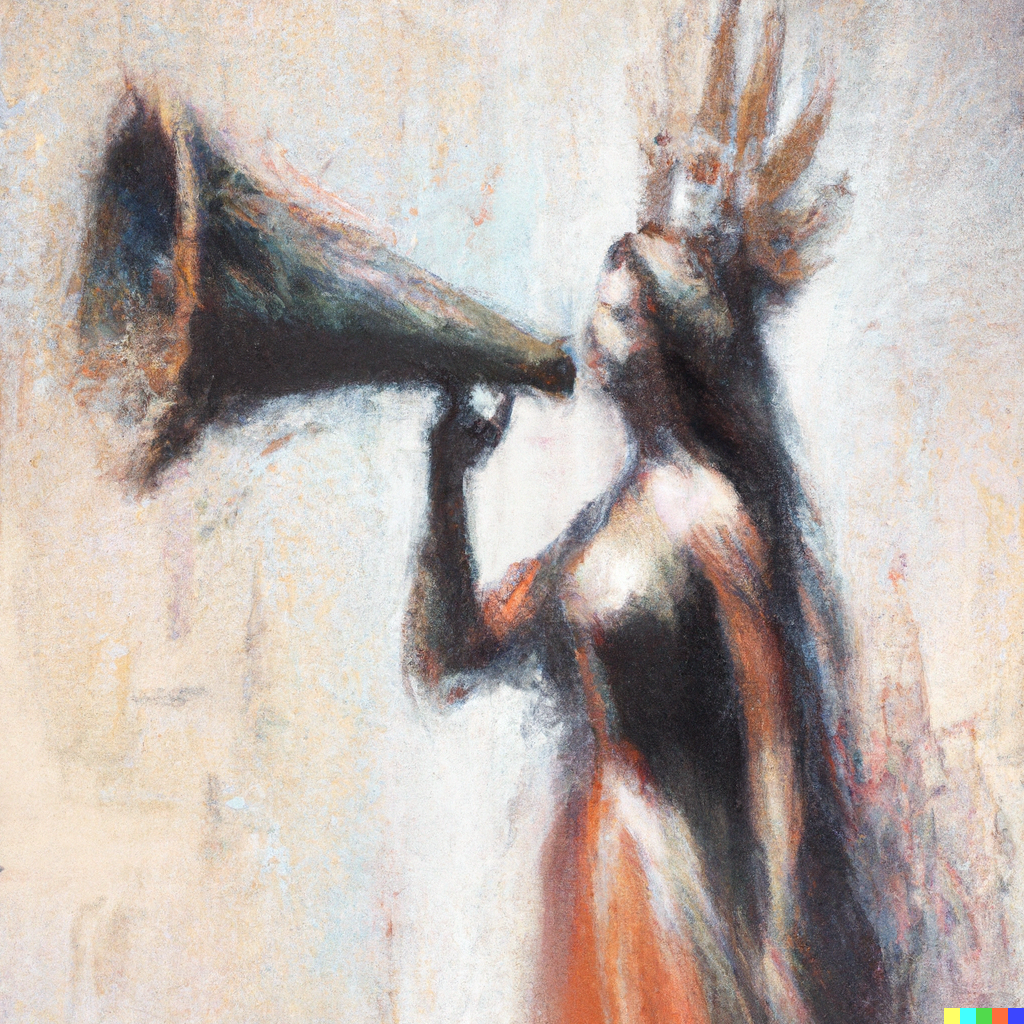
“We're not going to be put off.
We assert our right to protest,”
Graham Smith said.
The chief executive of the anti-monarchy group Republic was arrested at about seven o’clock in the morning on the Coronation and released later with no charge.
On the Coronation day, 64 arrests were made including anti-monarchy protesters, environmental activists, animal activists, a journalist, volunteers, and even an Australian woman mistaken for a protester under new policing laws.
A new offence of the Public Order Act, which came into force just four days before King Charles was crowned, allowed the police to arrest Smith as "being equipped for locking on" to cause “serious disruption”.
The definition of "serious disruption" described in the Police, Sentencing, Crime, and Courts Act 2022 can sound vague. Smith just had luggage straps to hold placards together.
Eric Heinze, a professor of law and humanity at Queen Mary University of London said,
“It makes people very unclear about how they can participate, to what degree they can participate, what they can say, what methods they can use. That’s simply contrary to democratic participation.”
While the Met Police denied “any suggestion all protest was prohibited”, they apologised to Smith. He did not accept it and took “further action.”
On the 27th of May, three weeks after the Coronation, Smith attended a protest at Parliament Square. His yellow sash said "Not My Bill".
Under the clear skies, the 75m grassy area was jam-packed with enthusiastic protesters of Republic, Just Stop Oil, or human rights.
Despite different groups, they all strove for free speech which the new bills can threaten.
Maria Bagnoli held a board in her hand that read #FREEDOM of SPEECH PROTECT.
The 61-year-old artist said, “I have never known anything quite as scary as this [bill]” in her entire life.
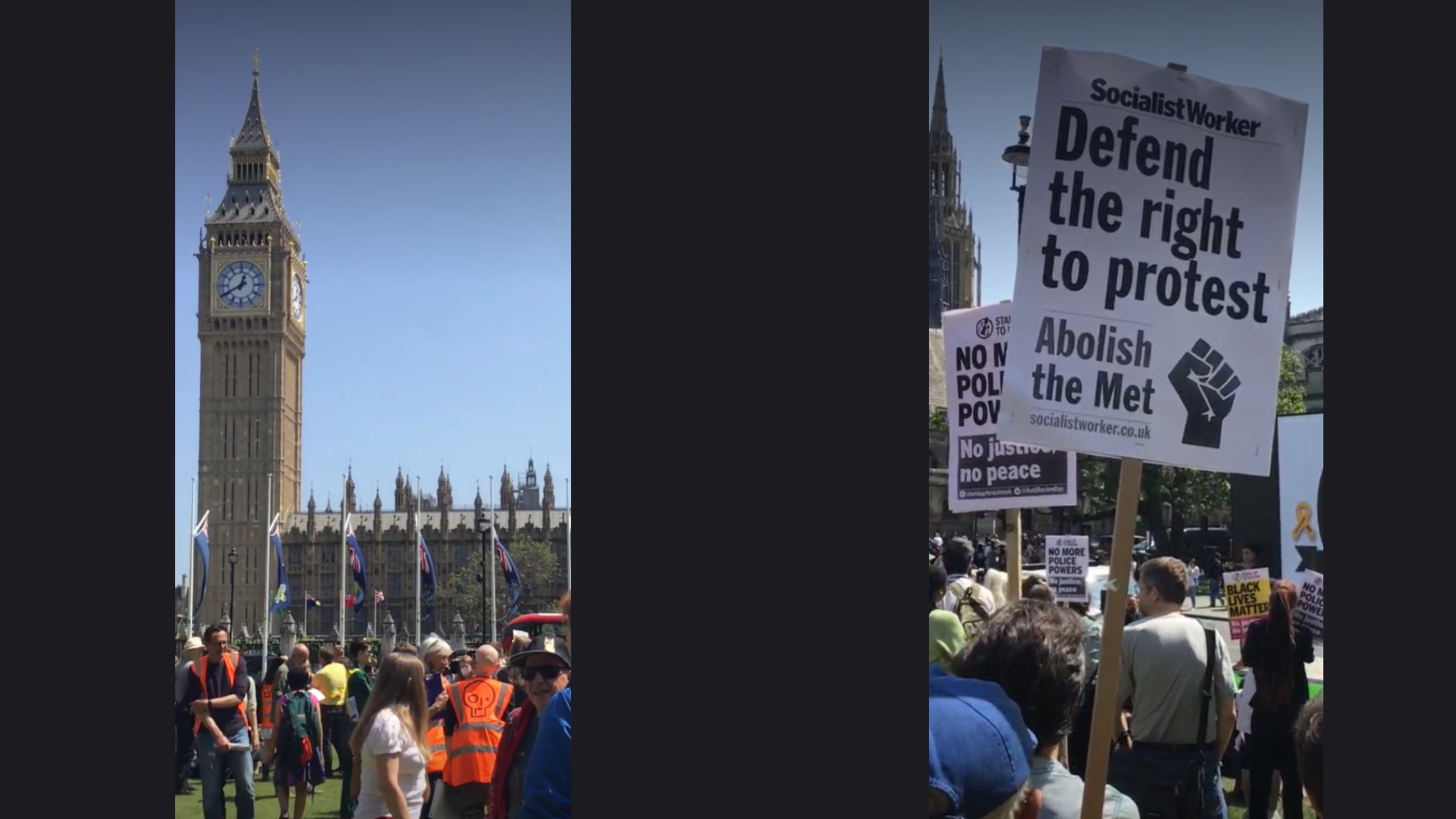


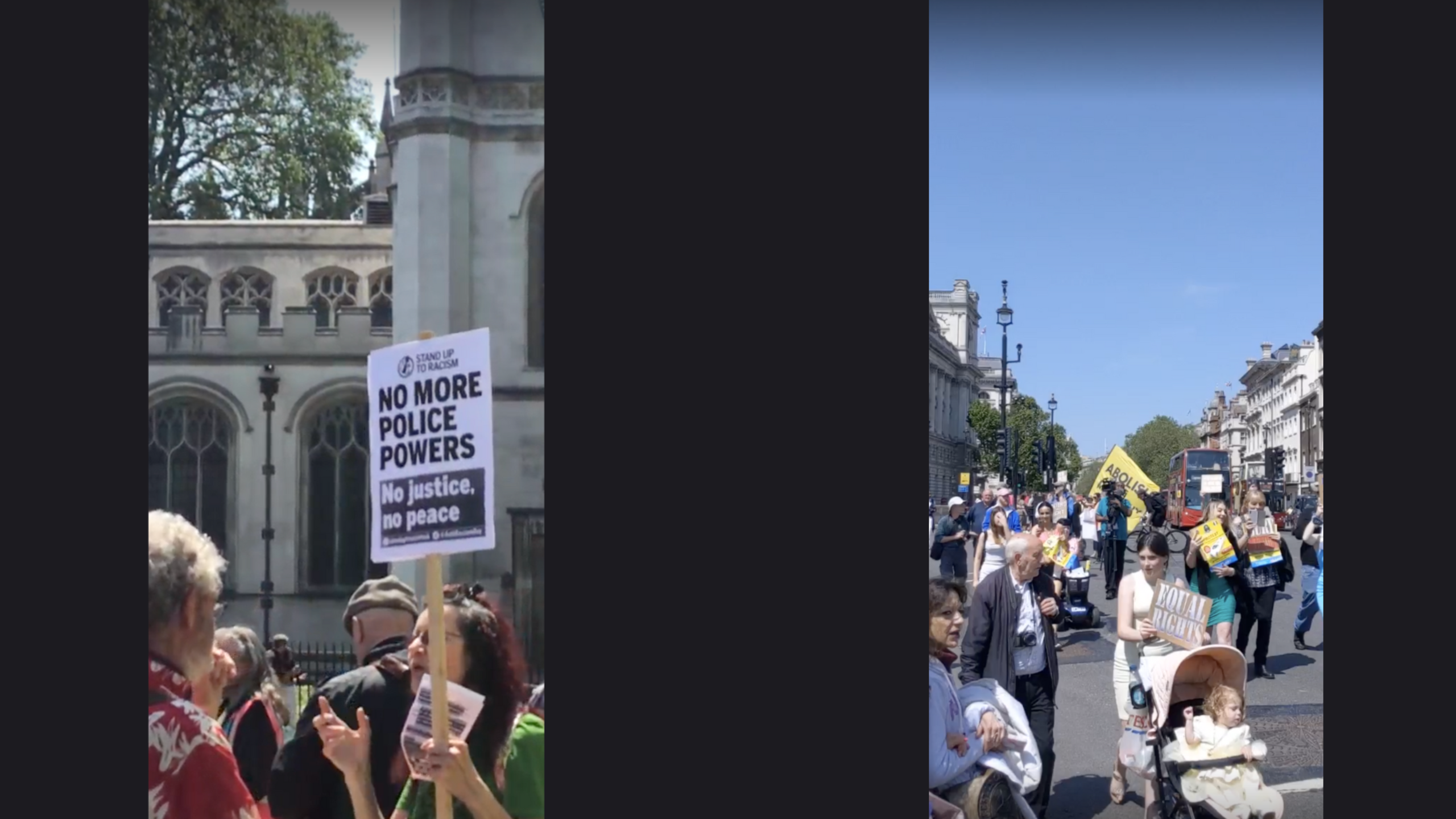

It's time to consider free speech.
But, without listening to voices from outside of the protest, can we discuss the matter?
Maybe not.
Of course, those who encountered the protest on the 27th have the right to speech.
Natalie Whife, 21, student living in London
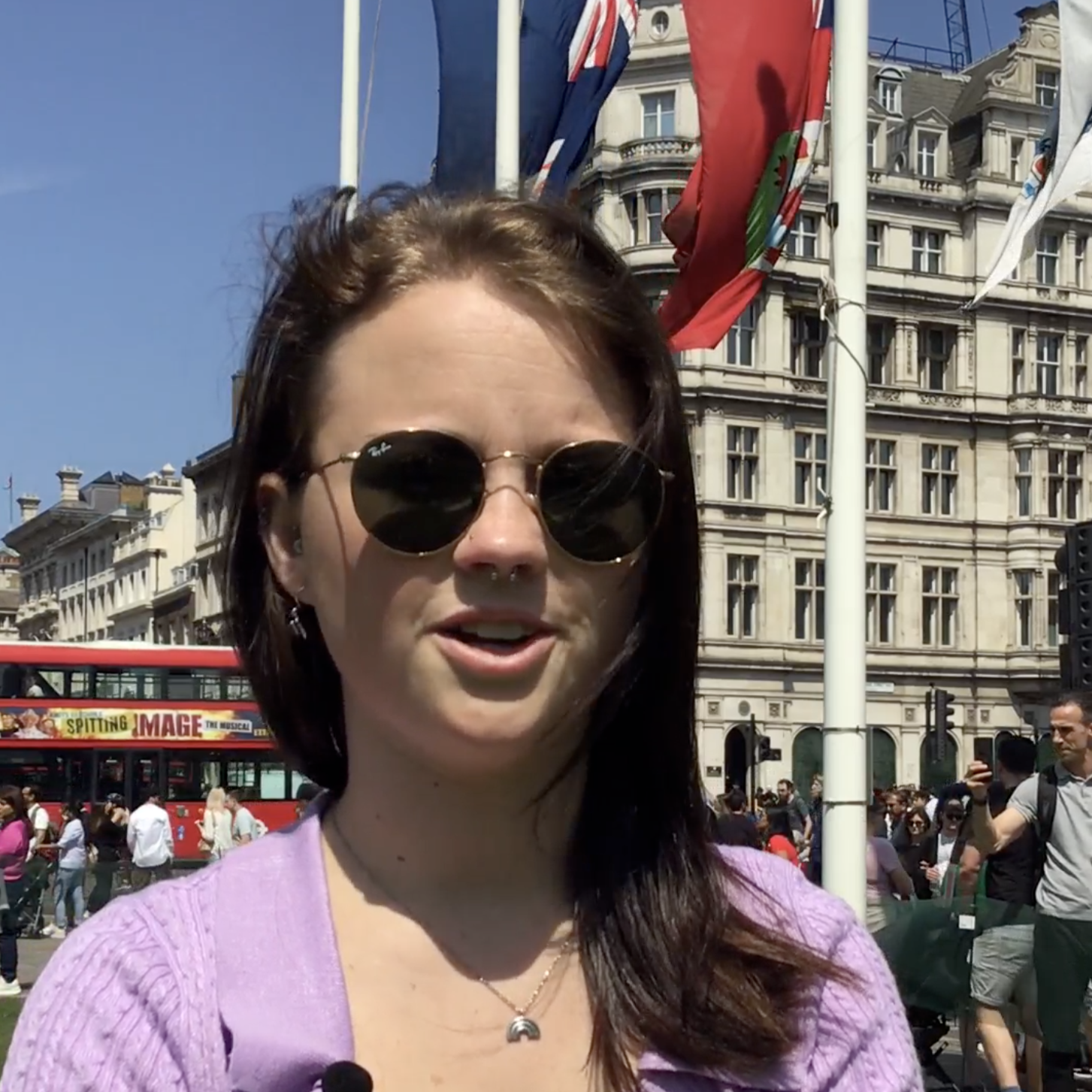
“Free speech and protests are like our top basic rights. I think everyone lives a very different life, and laws and politics affect everyone very differently, so we all need a voice to talk about our concerns.”
Kristian Ramirez, 26, traveller from the US
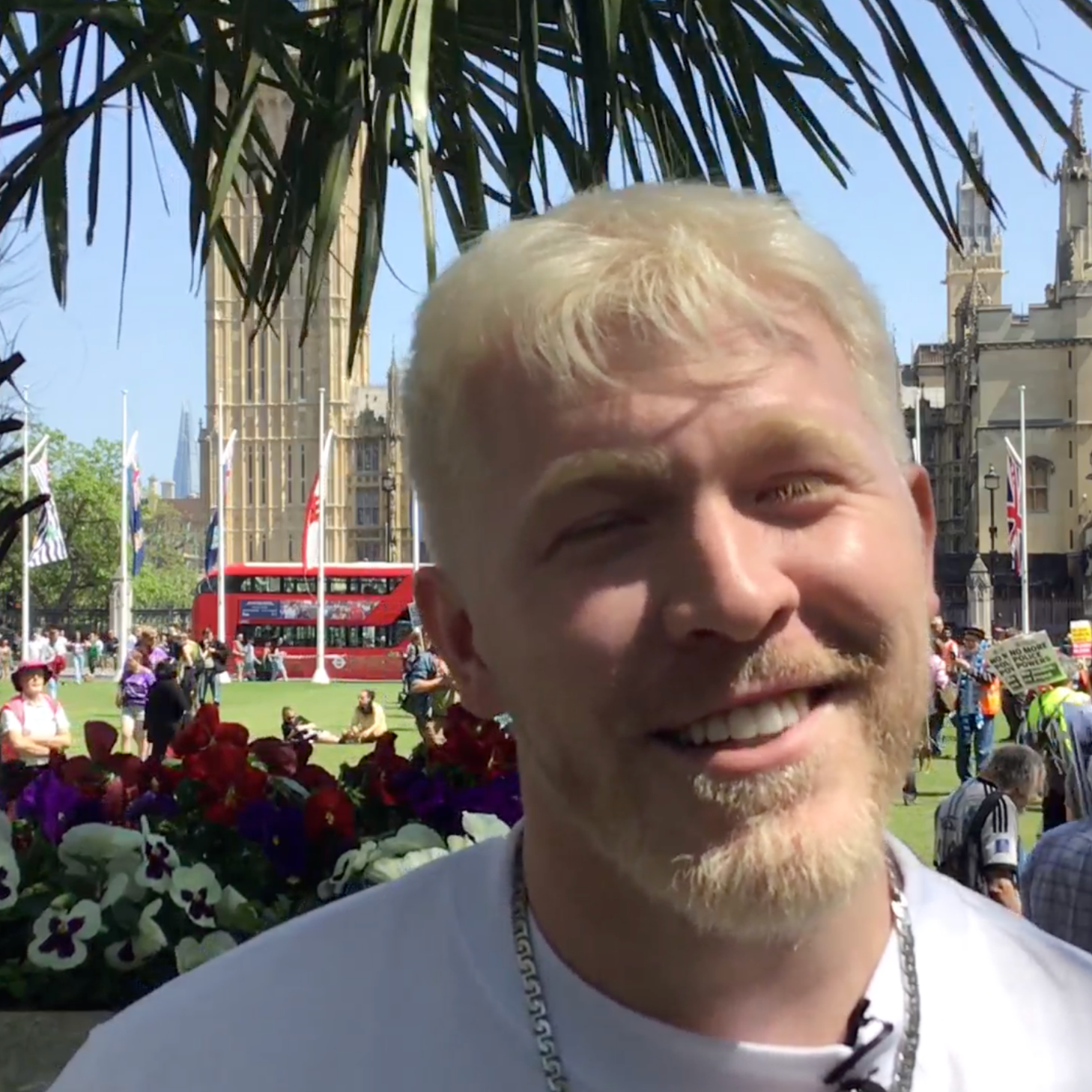
“Anybody should be able to speak their mind within reason as far as being peaceful about it. It's kind of weird [for me] coming from the United States to hear because over there that's essentially our First Amendment is free speech.”
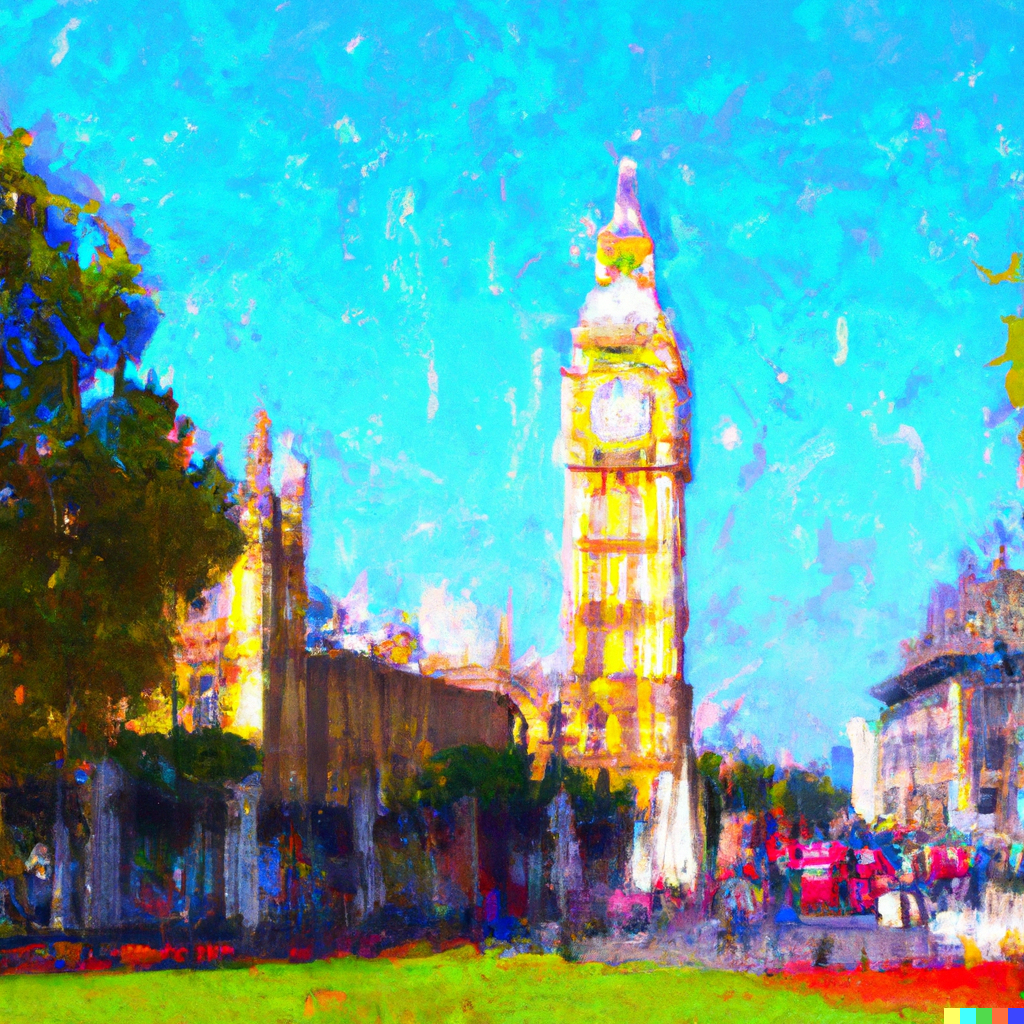




In Bournemouth, miles from the noise of the protest, three individuals also shared their views.
Emma O’hara, 58, dentist
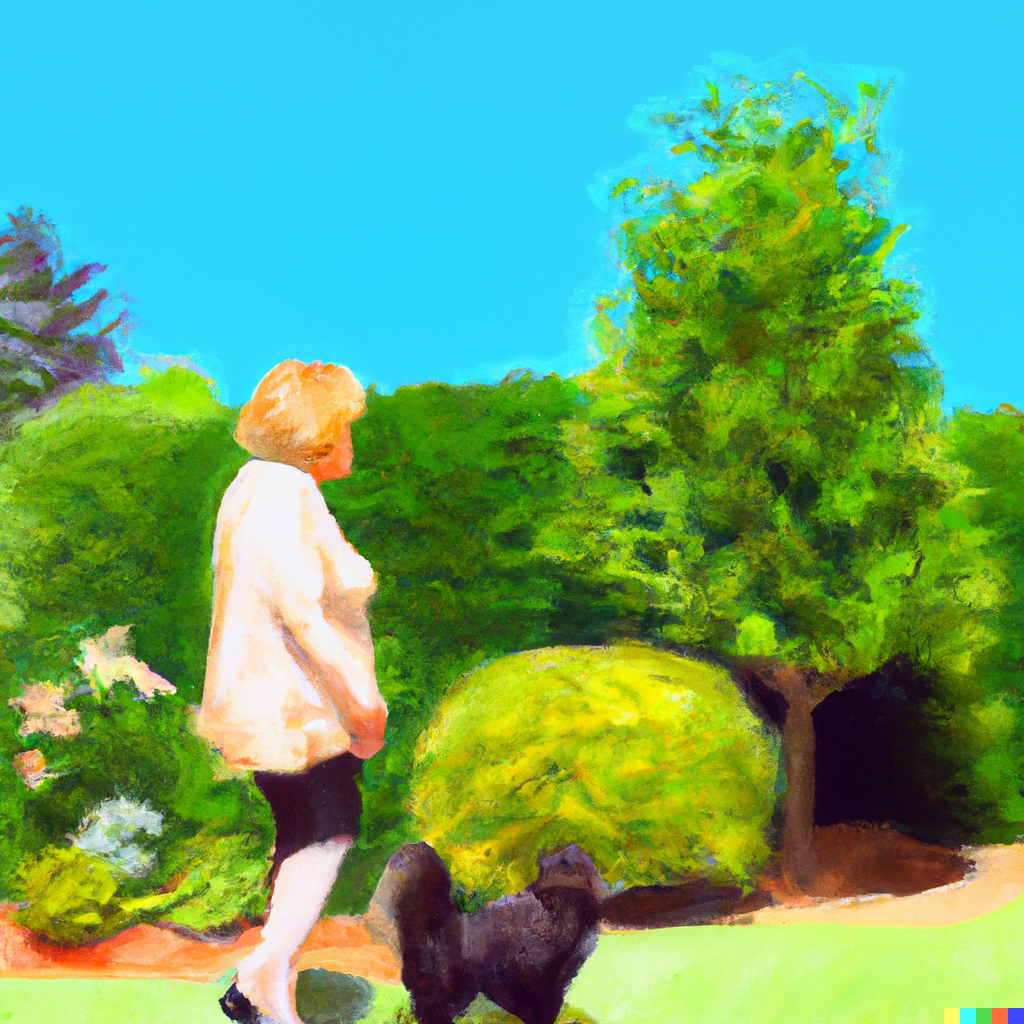
“I wish people wouldn't protest as much because I think we're all in the bad situation at the moment. We have quite good free speech in the UK. ”
Imogene Meyer, 35, business consultant
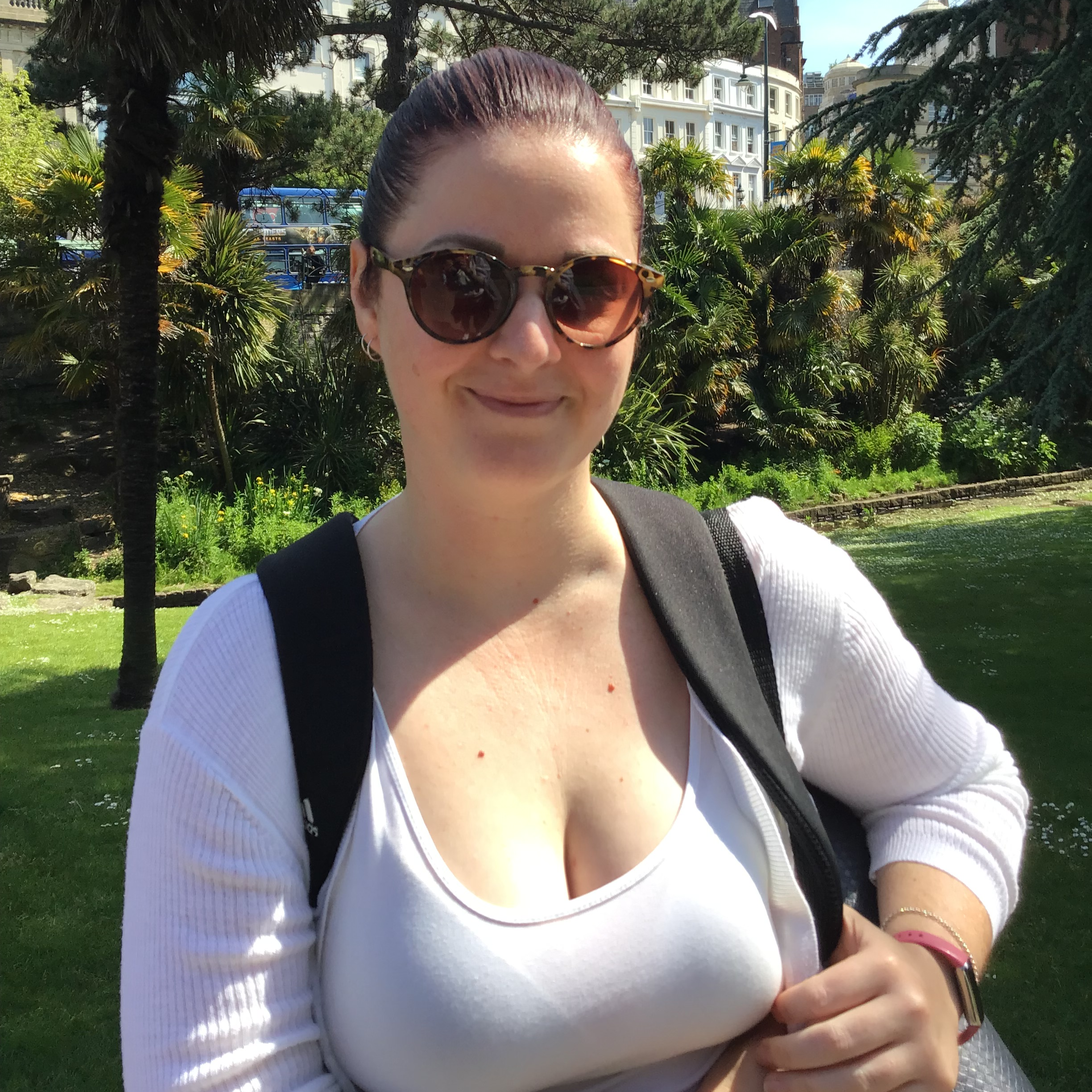
“I don't think a protest should create damage but I do think people have a right to stand up when they don't agree with something and that should be done in a peaceful way and respected as well. Everyone's got an opinion.”
Joe Hudson, 40s, teacher
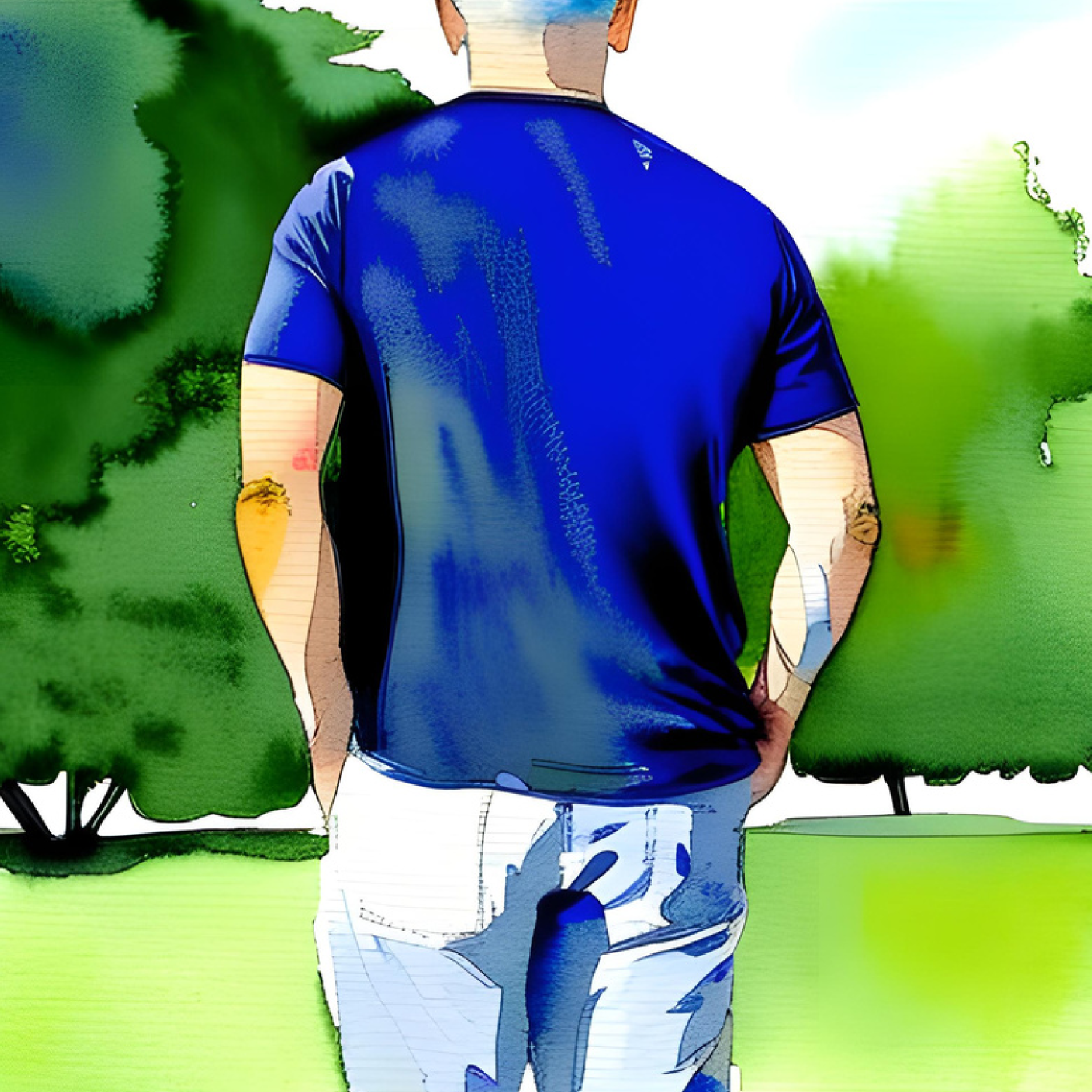
“I think the right to protest is vital. Some inconvenience or disruption should be expected. It's part of what protest is, isn't it? to cause some attention.”
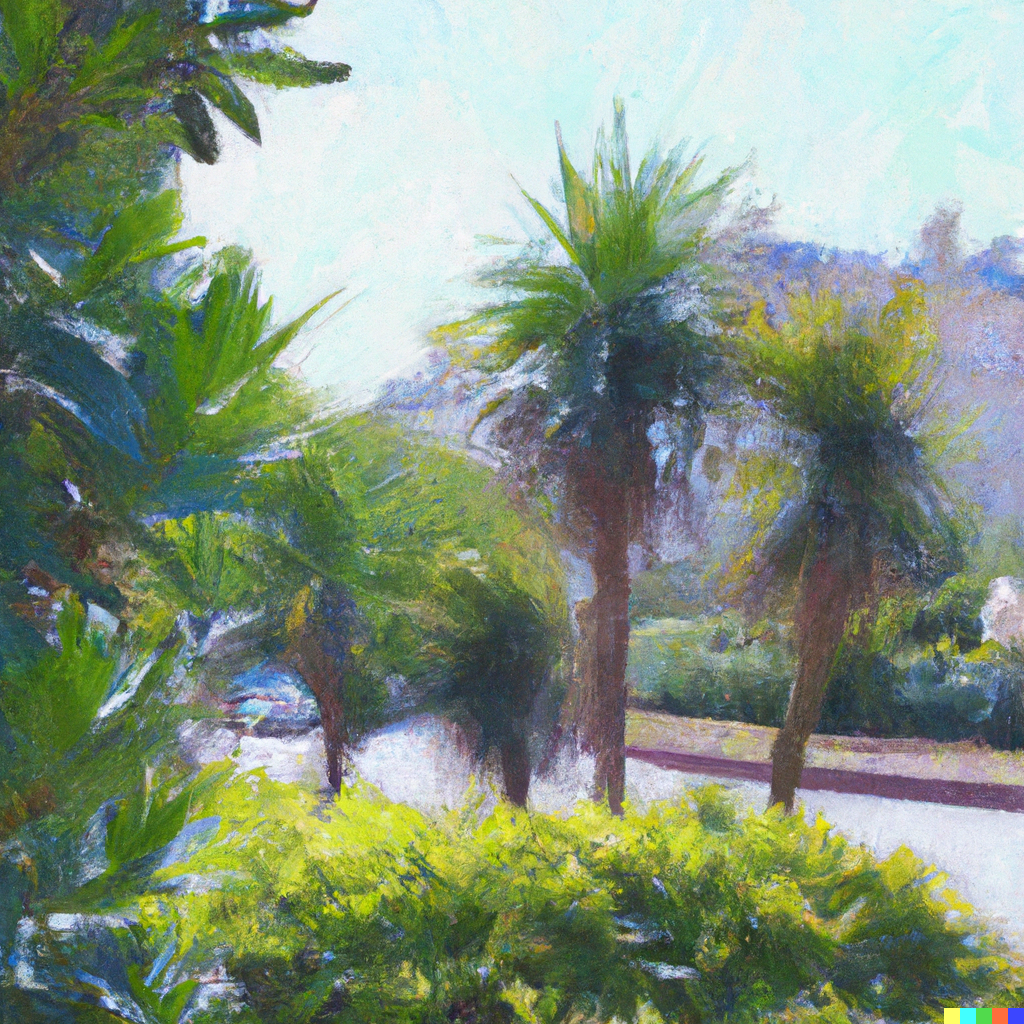








Like them, no one can deny that free speech is a fundamental human right.
It can create an environment of open dialogue, diverse perspectives, and innovation, and act as a safeguard against the abuse of power.
Without it, democracy, intellectual development, and societal comprehension would be severely impeded.
However, a new global index of free expression revealed that the UK has been ranked in the third layer(named “partially open"), which is lower than France, Spain, or Italy placed in the second tier.
Norway, the Netherlands and Denmark as Professor Heinze called, “democratic neighbours” are top rankers.
“In any strong democratic society, governments do allow that some disruption is tolerable. A little bit of disruption is not going to destroy,” Professor Heinze said.
Strict regulations of protests by a government “indicates its own insecurity and vulnerability, suggesting that the protest threatens its hold on power”, according to Professor Lance Strate at Fordham University.
Indeed, the approval rating for the UK government and the trust and confidence in the police have not been high for years.
Given the circumstances, Prof. Heinze said,
“This government has no other cards to play, so plays the populist cards” by using "inflammatory rhetoric about free speech.”
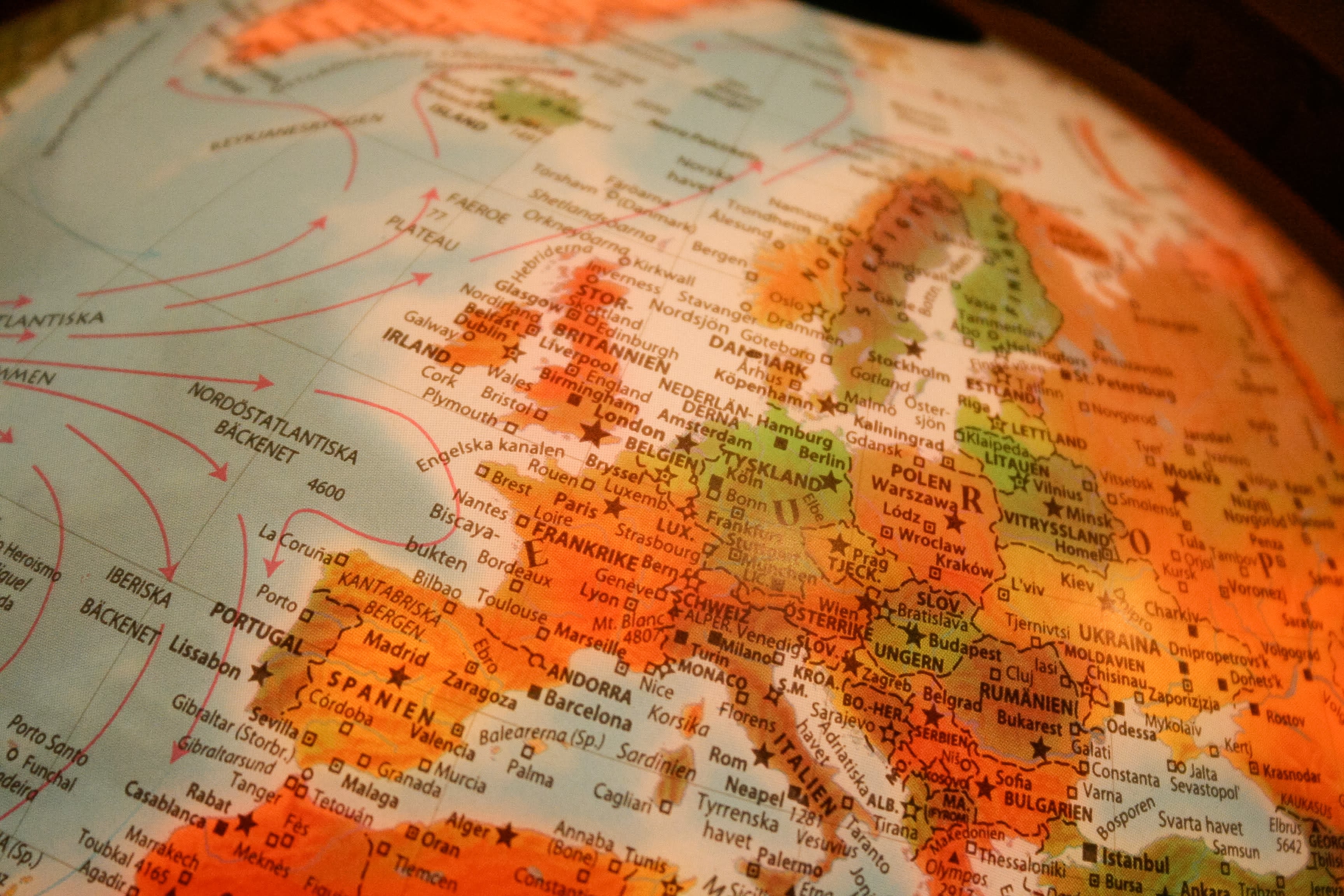



Amid such volatile situations,
free speech is no longer stable.
But, again, it is our fundamental right, all human beings should have and maintain.
As our ancestors did,
it's time to put the matter on the table.
Don’t let free speech flee.
This article was produced with the help of Artificial Intelligence, in particular Chat GPT, Nightcafe, Canva and DALL.E-2. Slide 9 about the importance of free speech was written with the help of ChatGPT. Multiple prompts were used as an input in AI to gather data, which was then cross-referenced with other sources and edited by journalists reporting for the breaker.
